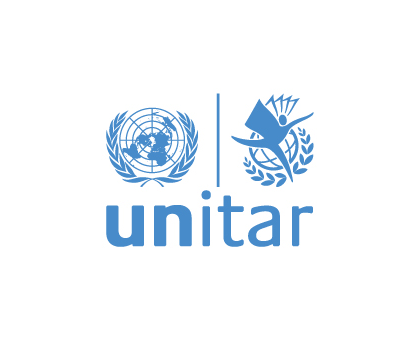
Advanced Remote Sensing for Sustainable Land Management in Bhutan
UNOSAT is implementing The project “Strengthening Capacities in the Use of Geospatial Information for Improved Resilience in Asia-Pacific and Africa.” (2021-2024) intends to develop sustainable capacities and implement ad-hoc and tailored geospatial solutions. These can help to improve existing policy and decision-making processes to solve priority issues in the fields of Disaster Risk Reduction. Partnership with the government is crucial to the success of the project. UNOSAT aims to develop innovative capacity development solutions and geospatial services by integrating data, technology, knowledge, and people - custom-tailored to the country's needs. This 3-year long project builds on previous experiences and aims to further enhance capacities by leveraging technological advances and innovation and providing integrated geospatial solutions for improved decision making in the fields of Disaster Risk Reduction, Climate Resilience, Environmental Preservation in the eight target countries: Bangladesh, Bhutan, Fiji, Lao PDR, Nigeria, Solomon Islands, Uganda, and Vanuatu.
Remote sensing has revolutionized our ability to study the Earth's surface, providing insights into the environment, natural resources, climate change, and urban development. The advent of Big Data Analytics, Machine Learning, and Deep Learning has made it easier to extract profound insights from satellite imagery across various domains, including environment, ecology, agriculture, development, disaster management, and natural resource management, facilitating informed decision-making.
This training program has been carefully designed to introduce participants to modern remote sensing and provide practical examples of using cutting-edge tools like Google Earth Engine and ArcGIS Pro to maximize the utilization of satellite data for land monitoring and management. By developing these capabilities, Bhutan will be well-prepared to address emerging challenges and promote sustainable development.
At the end of the course participants should be able to:
- Recall the fundamental concepts and terminology associated with Remote Sensing and explore remote sensing data using web-based platforms.
- Identify globally accessible data sources for land monitoring and conduct change detection analysis.
- Recognize the significance of satellite imagery-derived indices and image classification in land monitoring and carry out customized change detection for various landcover types.
- Conduct time-series satellite big data analysis using Google Earth Engine to track land change trends.
- Develop strategies for utilizing satellite-derived land monitoring products to enhance decision-making.
This course provides advanced training in remote sensing and geospatial analysis, focusing on the utilization of cutting-edge technologies and tools. Participants will gain hands-on experience with various software platforms and techniques, enabling them to extract valuable insights from remote sensing data. The course covers a wide range of topics, including ArcGIS Pro for remote sensing, advanced image processing, image segmentation, object-based image analysis, and classification using deep learning algorithms, change detection, and satellite data analysis using Google Earth Engine (GEE). Additionally, participants will explore the application of GEE for land use change monitoring.
This is a full-time, face-to-face course with lectures, GIS lab exercises using GIS datasets and real case scenarios (60% lab exercises, 40% lectures and discussions), and field data collection. This course is divided into 5 modules. Each module is structured into 4 sessions of 1.5 hour each. The average workload is likely to be around 35 hours. The course is designed in a way to have a balanced approach between theoretical and practical teaching methods consisting in PowerPoint presentations, games, live demos, videos, interactive sessions, and GIS lab exercises. At the end of the course, UNITAR-UNOSAT will set up a community of practice platform to maximize the learning experience of participants and to provide all required technical backstopping and assistance to training participants during and after the training
The course is designed to accommodate selected participants by NLCS and other relevant stakeholders with previous GIS experience.

